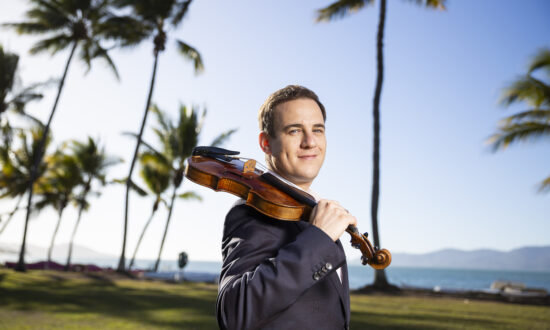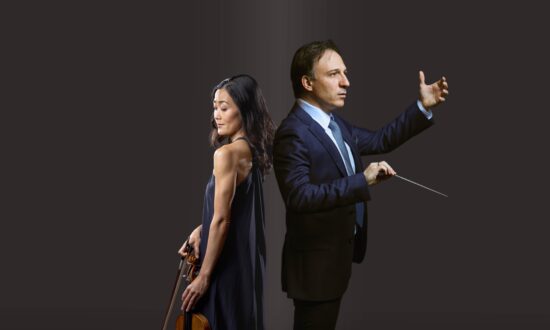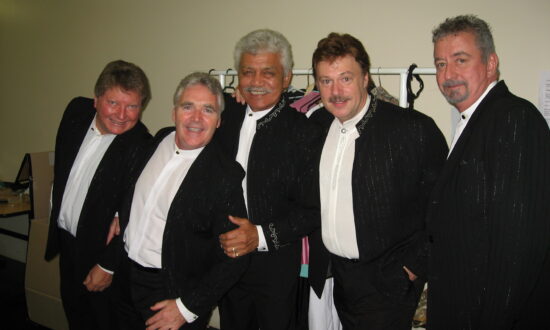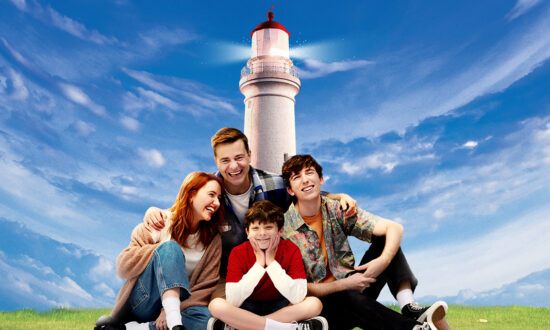The sixth and final instalment of the ASO’s first “Festival of Orchestra” put smiles on hundreds of faces on Saturday night, but the orchestra and its management should be the most pleased with the finale and what it said about their six-concert experiment.
Under clear skies at the Adelaide Showgrounds, a buzzing crowd including plenty of children was treated to the kind of magic that looks seamless but requires enormous technical and artistic expertise.
Blue Planet II is a highly-awarded nature documentary series from the BBC, focusing on marine life and narrated by Sir David Attenborough.
In the live set-up, which has been performed for several years in many countries, the orchestra’s live sounds are mixed with ambient sound from above and beneath the waves, with a live narrator – in this case, scientist, author and broadcaster Dr Karl Kruszelnicki – introducing a string of scenes from the series.
As the light faded on the Hills, the concert began with a spinning blue globe projected in extraordinary definition on a screen floating above the orchestra.
Under the baton of Vanessa Scammell, who has conducted Blue Planet II before, the sounds of gulls and lapping water melded into an “overture” of sorts – a lone voice from the Adelaide Chamber Singers, in a kind of modal chant, was joined by the strings in the lovely opening theme. And then, on screen, we were soaring above the ocean, with pods of dolphins torpedoing through blue waters.
The music, by renowned film composer Hans Zimmer, Jacob Shea and David Fleming, is suitably epic in its style and scope – the majestic theme of the opening returning again and again in various forms.
Kruszelnicki, while lacking the rich and familiar tones of Sir David, introduced the concept – the idea that our planet really is marked by its water, not its “Earth”. He introduced the first vignette, then returned to introduce each segment through the evening.

Dr Karl Kruszelnicki introduced each scene from Blue Planet II. Photo: Claudio Raschella
The emotional range of the chosen scenes was extraordinary. On the heartwarming side, there were ingenious clownfish working together to repurpose a piece of coconut shell as a home for their nursery of young ones; spectacularly coloured puffins doggedly fighting to escape sleek pirate birds – Arctic skuas – who were trying to steal fish they had caught for their young.
Some vignettes were like a cinematic thriller, verging on horror: laughter at the delicate leaps of the sally lightfoot crab gave way to gasps as we realised it was being tracked by a slithering moray eel and octopus as it made its perilous journey between rocks, and there was open-mouthed surprise at giant trevally tracking and leaping to swallow whole young sooty terns bobbing on the surface.
Of course, there was plenty of awe: feeding frenzies of orca and dolphins amid swirling giant schools of tiny fish; the colourful aliens of the deepest waters; a lone and beautiful Portuguese man o’ war “sailing” serenely on the surface, while below its long poisonous tentacles seek prey.
The skill of these sorts of live soundtrack events is coordination: and this was impeccable. As a clever tuskfish smacked a clam against a hard surface to extract the edible parts inside, the orchestra’s hit was spot-on; as a pack of highly-intelligent sea lions herded huge tuna onto the rocky shore (one of the more astounding behaviours captured in Blue Planet II), the swells of the music were perfectly in sync.
The ASO was in tight form as it traversed the soundtrack, with the chamber singers providing an air of the sacred with their backing oohs and aahs. Zimmer’s huge bank of movie work was evident in the skill of matching themes and motifs with the action. Flashes of familiar works – like his very distinctive Pirates of the Caribbean soundtrack – occasionally surfaced.

ASO musicians perform the epic live soundtrack. Photo: Claudio Raschella
No serious celebration of the oceans could go by without recognition of environmental threats (and one of the more poignant segments was a mother walrus and her child in the warming Arctic trying to find ice on which to shelter and rest). A recorded message from Sir David about our collective ability to make change was supported by Dr Karl’s noting of “the Blue Planet effect”: a generation of people so inspired by the beauty and wonder of the documentary series, that they become determined to protect the oceans.
Another less global effect of this concert, and the festival surrounding it, might be that it helps develop the audience of the future for the ASO. Given the laughter and gasps coming from the crowd, we can hope that everyone present will always remember the awe inspired by this event, and seek more of the wonder that only a live orchestra can provide.
Blue Planet II: Live in Concert played at the Adelaide Showgrounds at Wayville on Saturday night as part of the ASO’s Festival of Orchestra series. See more FOFO reviews here.
The Adelaide Symphony Orchestra’s final concert of 2021 will be Nativity, at the Town Hall this Thursday and Friday, which showcases a major new work by composer and conductor Richard Mills.
Support local arts journalism
Your support will help us continue the important work of InReview in publishing free professional journalism that celebrates, interrogates and amplifies arts and culture in South Australia.
Donate Here




